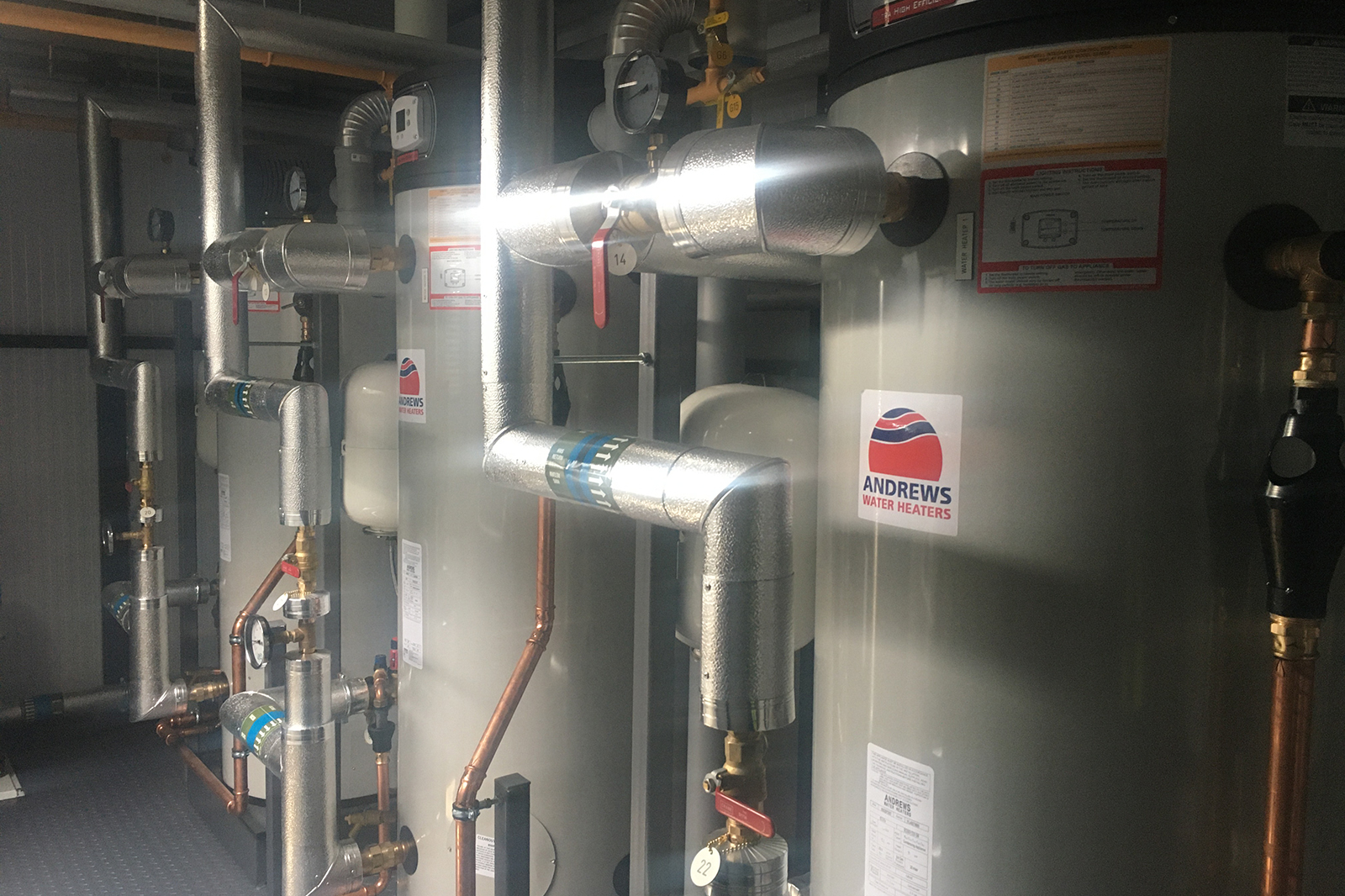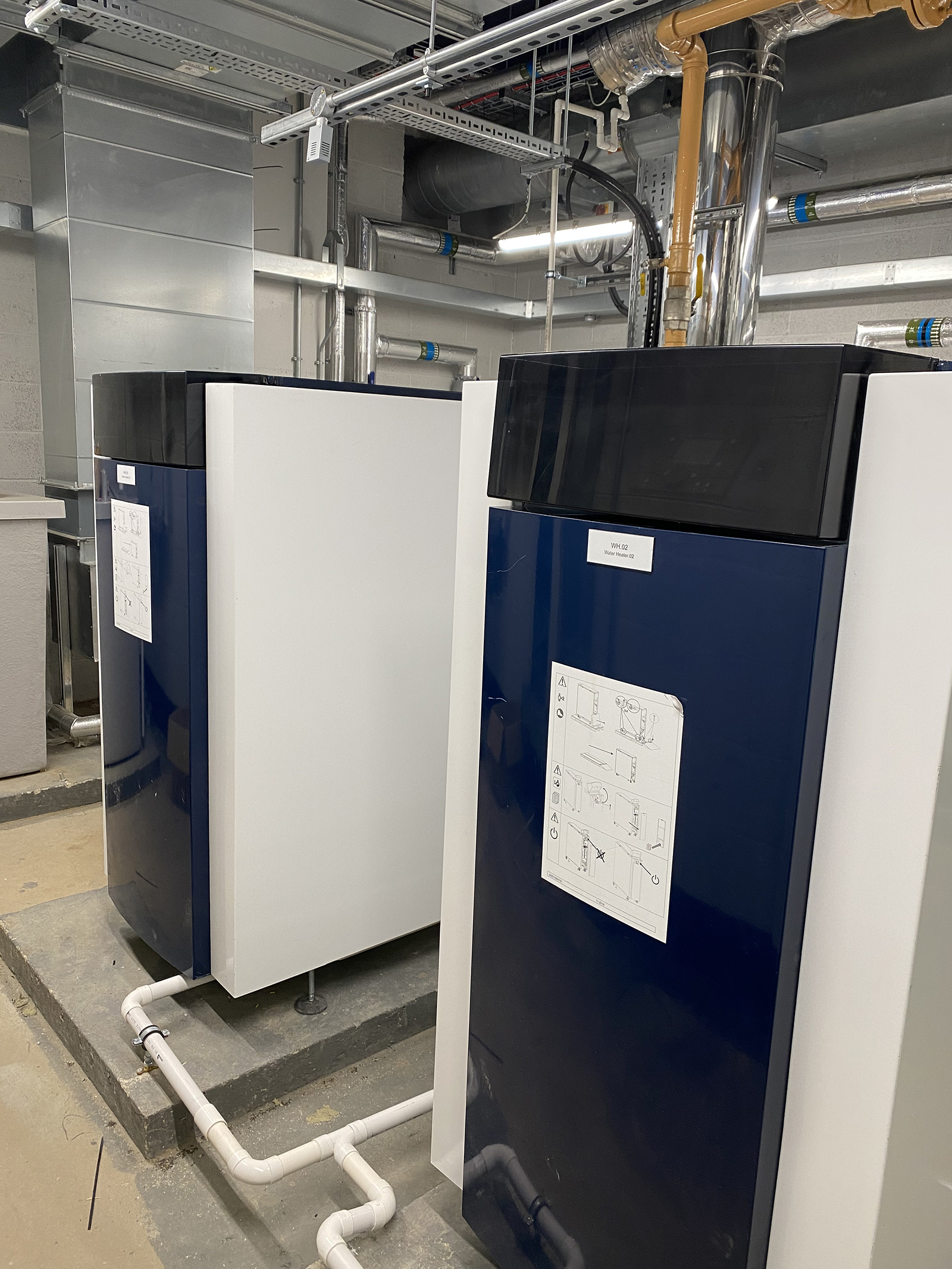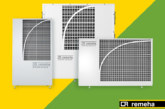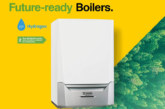
Changes to Part L Building Regulations are set to rule out non-condensing water heater replacements from 15th June 2022 in favour of more energy efficient condensing units.
These changes effectively remove the opportunity to carry out like-for-like non-condensing water heater replacements in the vast majority of buildings.
So how can merchants help their customers to ensure they’re protected moving forward? We recommend encouraging proactive planning now to avoid getting caught out whilst also future proofing the hot water system.
Back in December, the government published its much anticipated changes to Building Regulations. This included changes to Approved Document L which is concerned with the conservation of fuel and power in existing non-domestic buildings.
The new requirements state direct fired water heaters must achieve a minimum heat generator seasonal efficiency of 91% (GCV) for natural gas and 92% (GCV) for Liquified Petroleum Gas (LPG). For indirect fired water heaters, the minimum heat generator seasonal efficiency is set to 91% (GCV) for both natural gas and LPG.
This effectively phases out the use of non-condensing water heaters in the vast majority of buildings. However, it is worth noting that Approved Document L does state that in very exceptional circumstances, where condensing water heater replacement is deemed not suitable or practical by local building control, then a minimum seasonal efficiency of 80% for gas and 79% for LPG may be used.
Condensing water heaters are an efficient, cost effective way of delivering large volumes of sanitary hot water in a short time. And condensing water heaters, unlike their non-condensing counterparts can capture and reuse latent heat that is otherwise lost through the flue. As such, they are up to 20% more efficient. Units like the Andrews Water Heaters ECOflo, MAXXflo EVO and SUPAflo EVO can all achieve maximum efficiencies of up to 98%. NOx emissions are also lower making them the sustainable choice in new builds too.
But there are a significant number of premises that rely on non-condensing water heaters. At the moment, there is still the option to provide like-for-like replacements of non-condensing water heaters. The main advantage of this approach is that no major work is involved, so the non-condensing water heater can be replaced quickly with minimum disruption and downtime.
However, the disadvantage is some businesses consequently fail to upgrade to more efficient technology and as such miss out on energy, cost and emissions savings.
There are some considerations when switching from non-condensing to condensing water heaters:
- Usually a non-condensing water heater will typically require a vertical flue that will go from the plant room to the roof. On many projects a complete replacement of the flue may be required.
- Secondly condensate needs to be considered. Condensing water heaters need a suitable drainage point to discharge the condensate that is formed as part of the normal operation of the unit.
Both will need to be considered on a project by project basis. That’s why Andrews Water Heaters is offering free site surveys to advise on the best approach.
What nobody wants is for buildings to be left in an emergency situation with no hot water supply. So if customers are to protect business operations moving forward, they may need to start implementing a robust upgrade plan now or run the risk of potentially costly, extended downtime and disruption.
As manufacturers we look forward to working with merchants, contractors and end users to assist with sizing, helping assess challenges and opportunities to achieve the most appropriate solution.
Andrews Water Heaters is part of Baxi Commercial Solutions. To find out more and contact your Technical Sales Manager, visit andrewswaterheaters.co.uk/quality-condensed





